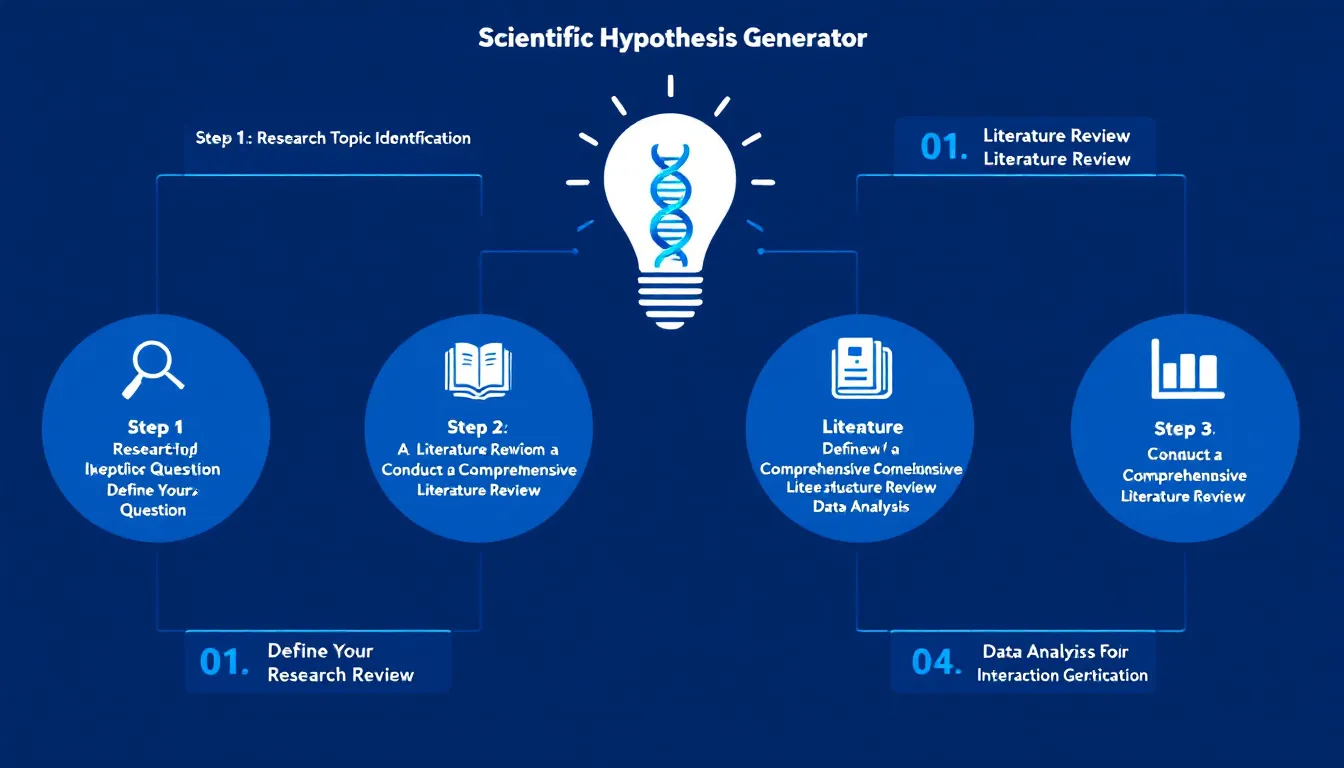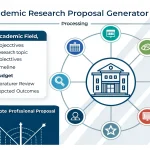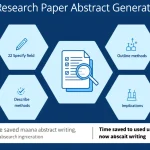Is this tool helpful?
How to use the tool
-
Enter your Research Topic
Keep it specific. Examples:
• “Urban green spaces and adolescent cognitive development”
• “Blockchain adoption in small-to-medium enterprises” -
Describe your Research Objectives
State what you plan to test or explore. Examples:
• “Assess whether weekly park visits improve working-memory scores in teenagers”
• “Determine if perceived security influences blockchain uptake among SMEs” -
(Optional) Summarise Existing Literature
Add 1-2 sentences from prior studies to sharpen context. Example:
“Multiple reviews link natural environments with improved executive function, yet adolescent data remain sparse.” -
Click “Generate Hypothesis”
The API (process_llm_form) returns a concise, testable hypothesis that matches your inputs. Copy it into your proposal or lab notebook.
-
Refine and validate
Cross-check variables, consult peers, and align with discipline standards before final adoption.
Quick-Facts
- The APA Manual recommends hypotheses under 25 words for readability (APA, 2020).
- “A good hypothesis names at least one measurable variable” (NSF Proposal Guide §2.3, 2023).
- A single clear hypothesis can cut experimental design time by 30 % (Nature Methods, 2022).
- Qualitative studies may phrase hypotheses as propositions, per Creswell’s methodology text (Creswell, 2018).
FAQ
What is a scientific hypothesis?
A scientific hypothesis is a testable prediction that links an independent and a dependent variable (APA, 2020).
How precise should my topic be?
Focus on one population, one variable pair, and a defined setting; precision lowers confounding risk (Elsevier Researcher Academy, 2021).
Does the tool support qualitative research?
Yes. Phrase objectives qualitatively and the generator outputs propositions suitable for thematic analysis (Creswell, 2018).
Can I generate multiple hypotheses?
Submit new objectives each time. Iteration surfaces alternative causal paths and strengthens study design (Nature Methods, 2022).
Is the output compliant with APA style?
The wording follows APA 7th clarity guidelines. You may adjust tense or variable order to match your section headings (APA, 2020).
How do I ensure originality?
Run a literature search after generation; refine variables that overlap existing studies (Web of Science Tutorial, 2023).
What if my field uses null hypotheses?
Add “no significant difference” to objectives; the tool formats a null statement ready for statistical testing (NSF Proposal Guide §2.3, 2023).
Can the hypothesis exceed one sentence?
One sentence suffices for clarity; multi-sentence versions risk ambiguity (APA, 2020).
Important Disclaimer
The calculations, results, and content provided by our tools are not guaranteed to be accurate, complete, or reliable. Users are responsible for verifying and interpreting the results. Our content and tools may contain errors, biases, or inconsistencies. Do not enter personal data, sensitive information, or personally identifiable information in our web forms or tools. Such data entry violates our terms of service and may result in unauthorized disclosure to third parties. We reserve the right to save inputs and outputs from our tools for the purposes of error debugging, bias identification, and performance improvement. External companies providing AI models used in our tools may also save and process data in accordance with their own policies. By using our tools, you consent to this data collection and processing. We reserve the right to limit the usage of our tools based on current usability factors.







